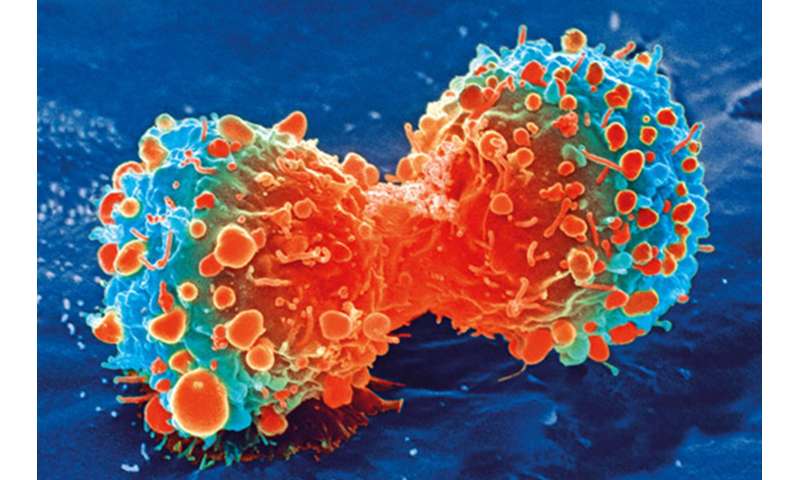
Hormone receptor-positive breast cancer can spread throughout the body via the bloodstream as circulating tumor cells, or CTCs, which eventually reach distal (remote) body sites to form metastatic tumors. An increase in ribosomes, the protein-making machinery found in every living cell, increases their potential to form metastasis, report investigators from Massachusetts General Hospital Cancer Center (MGH) and Harvard Medical School (HMS).
Their observation shows that a subpopulation of CTCs enriched from the blood of breast cancer patients have higher levels of ribosomal proteins (RP) and that their presence is associated with increased disease aggressiveness and poor clinical outcomes.
Importantly, the discovery also suggests that a combination of targeted therapies that disrupt the ribosome function and inhibit cancer cell growth slows the spread of breast cancer in a mouse model.
Their work is described in a first release paper published online in Science.
“The Haber/Maheswaran lab has been one of the pioneers in being able to isolate, analyze and now use CTCs that are derived from patient blood samples. They offer many advantages and opportunities for understanding the metastatic pathways that are involved in advanced breast cancer,” says investigator Douglas S. Micalizzi, MD, Ph.D., from the MGH Cancer Center.
Micalizzi and graduate student Richard Ebright, who led the study, and their colleagues collected and analyzed CTCs from the blood of patients with metastatic hormone receptor-positive breast cancer and used cell lines generated from CTCs. They used CRISPR activation, a technique for studying the effect of gene activation, to screen the entire genome of the CTCs for genes that promote cancer spread.
They found that ribosomal proteins in general, and in particular one ribosomal protein, RPL15, promoted the spread of breast cancer and that patients with more aggressive breast cancer and worse survival tended to have CTCs with high levels of ribosomal proteins. In collaboration with the Vasudevan lab at MGH, they demonstrated that RPL15 alters the landscape of protein production within the CTCs.
Using a mouse model of metastatic breast cancer, the investigators tested the combination of targeted therapies consisting of an inhibitor of the ribosome and an inhibitor of cancer cell growth. They found that the combination had “dramatically increased efficacy” against RPL15 CTCs compared with other CTCs.These findings suggest that metastases might be slowed or prevented and warrants further investigation.
Source: Read Full Article
